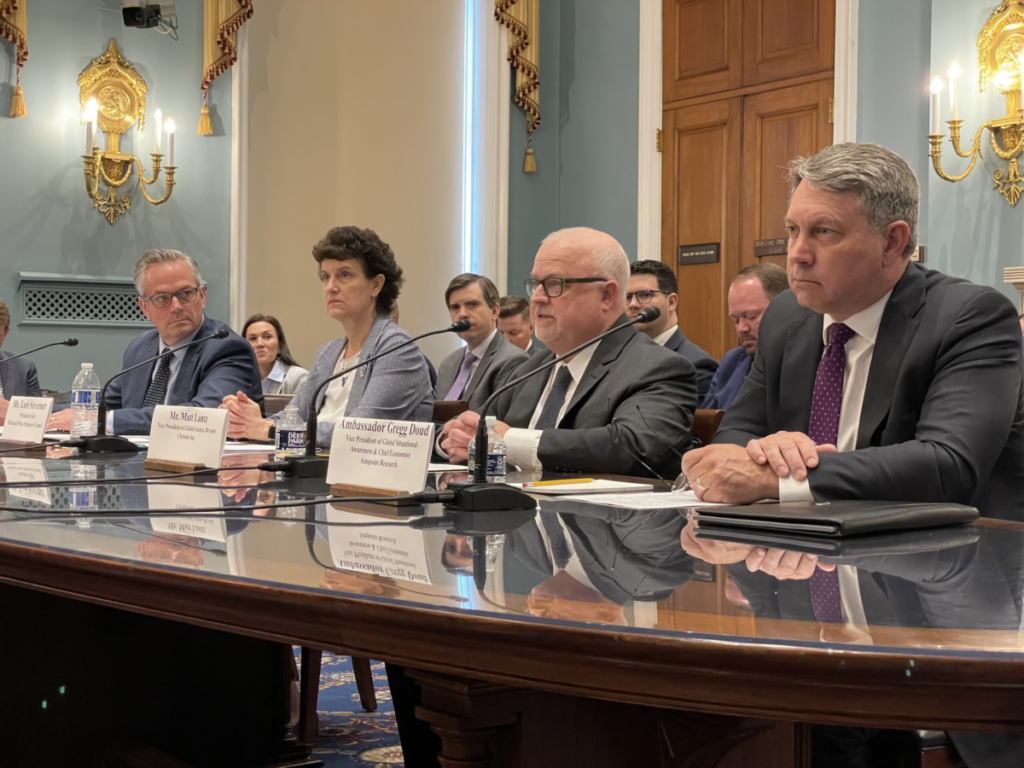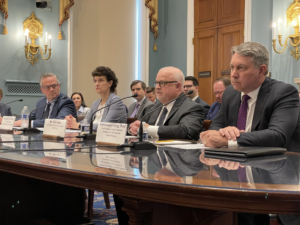
Fighting for a level playing field
U.S. potatoes are the standard upon which all other foreign-grown potatoes are measured. When allowed to compete fairly, America’s potato growers can — and do — stand up with anyone.
Unfortunately, fair competition is not always the case. My job is to help U.S. potatoes and other agriculture exporters open, access and develop markets — and, far too often, to challenge trade barriers erected to prevent U.S.-grown potatoes and other commodities from fairly competing.

On May 11, I was honored to represent the National Potato Council and the International Fresh Produce Association before the U.S. House Agriculture Subcommittee on Nutrition, Foreign Agriculture and Horticulture during a hearing on finding policy solutions to help U.S. farmers export. I focused my testimony on two important issues for the U.S. horticultural sector.
The first solution I offered was to support USDA and the U.S. Office of the Trade Representative in its work to ensure that U.S. agriculture exports are not hindered by the complicated issue of Maximum Residue Levels.
Differing pesticide MRLs are among the fastest growing trade barriers U.S. farmers and exporters face. A U.S. farmer can do everything right: follow the EPA label; responsibly grow the product; keep meticulous records; and ensure the product is compliant with all U.S. regulations. But because a foreign market either has not established a standard or has set an MRL at a more restrictive level than the U.S., that product can be rejected upon arrival in a foreign port, imposing a high cost.
Originally, the United States was one of the few countries in the world that
had its own MRL standards. During the last 20 years, numerous markets have transitioned to their own MRL systems, requiring U.S. ag industries to seek MRLs or risk economic consequences.

How does this play out? Let me provide an example. Over seven years, Korea transitioned to its own MRL system. Just before Christmas in 2021, I was contacted by the U.S. potato industry and told that despite obtaining more than 100 potato MRLs in Korea, an application for an important pesticide had not been made, and $100 million worth of U.S. potato exports to Korea were at risk.
Thankfully, working with USTR, USDA, the U.S. Embassy in Seoul, the registrant and the Korean government, a new MRL was established in record time (four months), and there was minimal trade disruption. The U.S. potato industry
was fortunate: finding such a “fast” and workable solution is rare.
MRLs are incredibly challenging, and USTR and USDA are working hard to ensure that U.S. agriculture is minimally hindered due to this complicated issue.
The second policy solution I offered the subcommittee was to fully fund the Technical Assistance for Specialty Crops program.
TASC is funded under the 2018 Farm Bill at $9 million annually and plays a crucial role for specialty crop growers in addressing trade barriers that emerge.
NPC’s ability to tap into TASC funding was essential during the U.S. potato industry’s fight to reopen the Mexican market for U.S. fresh potatoes. In response to the Mexican potato industry’s legal efforts to block access, NPC applied for TASC funds to hire experts in Mexico City to fight this trade barrier, culminating in the Mexican Supreme Court’s unanimous ruling in favor of U.S. potato access in April 2022.
Without TASC, U.S. specialty crops would be at a disadvantage and U.S. potatoes would not be in Mexico, which is why NPC seeks to ensure the program is funded in the 2023 Farm Bill.
To learn more about how NPC is working with Bryant Christie to open and protect foreign markets, visit nationalpotatocouncil. org/trade.







